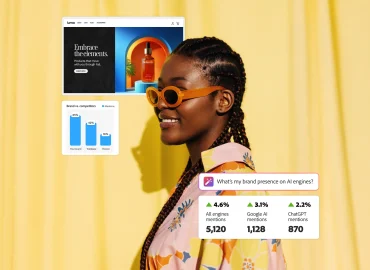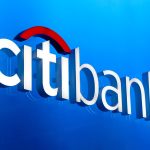
- AI
Adobe Launches AI Platform to Optimize Brand Visibility in ChatGPT
5 minute read

Adobe Launches LLM Optimizer to Help Brands Navigate AI-Driven Search Revolution
Three Key Facts
- Platform Launch: Adobe unveils LLM Optimizer at Cannes Lions, targeting brand visibility across AI chatbots including ChatGPT, Gemini, and Claude as consumer search behavior shifts away from traditional engines
- Market Growth: Global AI content marketing market projects $9.99 billion valuation by 2029 with 25.5% compound annual growth rate, while brands using generative AI report 8% engagement boost and 23% lower bounce rates
- Performance Impact: Companies implementing AI optimization strategies achieve 12% more pages per visit and conversion rate improvements of 20-40% through personalized content delivery
Introduction
Adobe transforms brand marketing strategy with the launch of LLM Optimizer, a platform designed to track and enhance visibility as AI chatbots challenge Google’s search dominance. The software giant introduces answer engine optimization (AEO) tools that help marketers navigate the shift from keyword-driven SEO to AI-powered discovery.
The platform addresses a fundamental change in consumer behavior. Users increasingly turn to AI chatbots like ChatGPT for information searches, forcing brands to adapt their digital strategies beyond traditional search engine optimization.
Key Developments
Adobe unveiled the LLM Optimizer at the Cannes Lions event, targeting marketing teams managing brand presence across generative AI platforms. The tool provides insights into brand performance across ChatGPT, Gemini, and Claude while enabling real-time content strategy adjustments.
The platform features a recommendation engine that analyzes AI responses and suggests content modifications to improve brand visibility. Marketing teams receive notifications when their content appears in AI-generated answers, allowing immediate optimization opportunities.
Loni Stark, Adobe’s vice president of strategy and product at Adobe Experience Cloud, explains the strategic shift: “Generative AI interfaces are becoming go-to tools for how customers discover, engage, and make purchase decisions.” This transformation requires brands to optimize for AI agents that synthesize information rather than traditional search algorithms.
Market Impact
The AI content marketing sector demonstrates robust growth trajectories. Industry projections place the global market at $9.99 billion by 2029, representing a 25.5% compound annual growth rate that signals widespread enterprise adoption.
Early adopters report measurable performance improvements. Adobe’s internal data shows brands using generative AI achieve 8% higher engagement rates, 12% increased pages per visit, and 23% lower bounce rates compared to traditional optimization approaches.
Despite AI platform growth, Google maintains search dominance with 373 times more queries than ChatGPT in 2024. However, ChatGPT’s user engagement continues expanding, creating parallel optimization requirements for forward-thinking brands.
Strategic Insights
The LLM Optimizer represents Adobe’s response to a fundamental marketing paradigm shift. Traditional SEO focused on keyword rankings, while AEO emphasizes context and authority to influence AI-driven content synthesis and presentation.
Brands face dual optimization requirements as consumers use both traditional search engines and AI chatbots for discovery. This creates competitive advantages for companies implementing comprehensive strategies that address both channels simultaneously.
The platform integrates with Adobe Experience Manager and offers standalone deployment options. Pricing scales based on enterprise requirements, enabling organizations to measure and monetize AI-driven traffic from previously untracked user journeys, according to ZDNet.
Expert Opinions and Data
Marketing expert Neil Patel positions AEO as an SEO evolution requiring sophisticated technical approaches. “AEO should be seen as a subset of SEO but with different technical demands,” Patel states, emphasizing advanced data markup and schema implementation for AI platform performance.
Industry performance metrics support AI optimization investments. Microsoft’s AI platforms reduce manual marketing effort by 30%, while HubSpot’s AI chatbots boost conversion rates between 20-40% through personalized content delivery systems.
The mobile and voice search expansion further drives AEO adoption. Brands building authority through diverse content placement, third-party mentions, and community engagement create stronger AI model recognition and recommendation potential.
Conclusion
Adobe’s LLM Optimizer launch acknowledges the marketing industry’s transformation as AI platforms become primary discovery channels. The tool enables brands to optimize for AI-driven search while maintaining traditional SEO strategies, addressing the dual-channel reality of modern consumer behavior.
Companies investing in AI optimization tools position themselves advantageously as consumer interactions continue evolving toward personalized AI recommendations. The platform provides measurable pathways for brands to capture value from AI-generated traffic and maintain competitive positioning in digital advertising markets.







